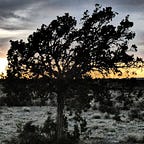What I’ve Learned From Being a Contact Tracer
Back in early August, as schools and colleges were putting some of the finishing touches on their return policies, I was making a transition of my own from public school educator to university contact tracer. The move away from the classroom was a long time coming for me, and contact tracing felt like a way to use some of my teacher skills like patience, organization, and public speaking in a way that still helped my community.
Coming into the field, I didn’t have much experience with the industry (my years in retail had focused more on logistics than customer service) and wasn’t entirely sure what I’d be getting myself into. I expected complaints of privacy violation and noncompliance, but also situations with people who were experiencing illness or hardship beyond my ability to offer meaningful help. Who was I to be telling people what to do?
And while my experiences conducting contact tracing for university students, staff, and faculty don’t reflect the entire picture of society, those experiences have taught me a lot about the relationship between public education and society at-large beyond what my classroom perspective ever could.
People Trust Expertise More Than Authority
Two of the primary ideas that I knew I wanted to carry over in my work dealt with…
